Kegel Exercise Benefits Explained:
How To Strengthen Your Pelvic Floor
Want to know how to engage your pelvic floor muscles for a happier, healthier sex life? Learn more about the many benefits of kegel exercises in this guide.
Kegel exercises have many benefits, regardless of whether you have a weak pelvic floor or not. A healthy pelvic floor aids in bladder control, prevents urinary incontinence, prevents prolapse, and helps bowel function and sexual health.
- For vulva owners, Kegels can make your vagina feel tighter by restoring muscle tone after vaginal births, strengthen orgasms, and aiding overall sexual functioning.
- For penis owners, Kegels increase blood flow to the genitals for stronger erections and can aid in erectile dysfunction.
In this guide, you will learn from experts all about how to enhance your sexual functioning by using Kegels for better sexual health.
What is the pelvic floor?

We asked sexual wellness experts, sexologist and nurse practitioner Melissa Hadley Barrett and authentic tantra practitioner and hypnotherapist Ava Ashe, to educate us about the pelvic floor.
Melissa Hadley Barrett: “Pelvic floor (Kegel) muscles are found between the coccyx (tailbone) and pubic bone in your pelvis. Imagine a basket or hammock of muscles in your pelvis.
“Their job,” Melissa says, “is to support the bowel and bladder for all as well as the uterus and vagina for people who have them.”
What happens when your pelvic floor is weak?
Ava Ashe: “Stagnation can occur in this area when pelvic muscles are not developed, or if they are overactive, causing an array of issues and trauma stored in the tissue.”
How does one identify your pubococcygeus muscles (PC muscles)?
Ava Ashe: “For men and women, the pelvic floor muscles are in-between the anus and genitals. You can take two fingers underneath the pelvis, locate the area between the anus and genitals (behind the scrotum for men) and gently press up and in while curling your fingers. This is where your pelvic floor muscles sit.
Here’s how to find them:
Melissa Hadley Barrett: “The best way to know where they are is stop your urine stream in mid flow… Focus on drawing these muscles inwards… Now you know where your pelvic floor muscles are. This is the pelvic floor muscles doing its job. However, do not do this more than a couple of times a week as you may cause problems such as increasing your risk of urinary tract infection (UTI).”
In addition to the above, here are two more ways to find your PC muscles.
Finding your pelvic floor muscles for vagina and penis owners:
- Insert a clean finger in your vagina and tighten your muscles around it.
- Similarly, penis owners can insert a clean finger into their anus and squeeze around that.
How do you know if your pelvic floor is weak?
Having a weak pelvic floor, or pelvic floor dysfunction can happen to anyone.
Melissa says: “Pelvic floor muscles can be made weaker by:
- Childbirth
- Constipation
- Being overweight
- Heavy lifting, including weights at the gym
- Coughing that goes on for a long time, such as with asthma, bronchitis, or a chronic cough
- Surgery for bladder and bowel problems”
Aging may also play a factor in the weakening of the muscles in the pelvic floor, which “naturally weakens with age”.
If you are worried that you may have pelvic floor dysfunction, Melissa shares with us the “Signs your pelvic muscles are weak:
- Lower back pain
- Leaking urine with cough, sneeze, laughter, lifting heavy things
- Poor-quality orgasms or anorgasmia – yes, that is right, you heard me, the stronger your pelvic floor the more intense the orgasm!”
Ava also notes that other issues could include “weak orgasms, less sensation in the genitals, incontinence, erectile dysfunction, low energy, low libido, and even menopause symptoms”.
If your PC muscles are too tight, this can cause other problems:
Ava Ashe: “Pelvic muscles can also be too tight and results in painful sex, vaginal dryness, or premature ejaculation. If this is the case for you, do not use Kegels – instead look into working with a professional pelvic floor specialist, qualified tantra practitioner, or sexological bodyworker.”
What is the pelvic floor?

Kegel exercises and Kegel balls are one of the easiest and most popular methods of improving pelvic health and strength over time, as a daily routine that you can do in the comfort of your own home.
You can do Kegels anytime and anyplace because only you will know you are doing them!
What are the benefits of Kegel exercises?
Kegel exercises aid in strengthening, as well as learning to relax, the pelvic floor.
As well as improved bladder control, Kegels help both vagina owners and penis owners acheive better sexual functioning.
Kegel exercises benefits sexually for vagina owners:
According to a review on Kegel Exercises, PC muscles play a significant role in female orgasm. Patients who went through pelvic training found they enjoyed improved sexual functioning after just one week of doing Kegels.
This included:
- Greater sensations and more arousal in their genitals due to more blood flow
- Increased desire, more lubrication, and better sexual satisfaction
- Relaxation of the vaginal muscles to help with vaginismus
- And, finally, stronger orgasms
Do Kegel exercises benefit men sexually?
Yes, Kegels have sexual benefits for penis owners as well! The pelvic floor in men facilitates erections and ejaculation. For people with pelvic floor dysfunctions, this can affect the strength of their erections and ejaculatory control. In one small study, researchers found that pelvic floor muscle training (Kegels) was effective in treating erectile dysfunction (ED) and premature jjaculation (PE).
How to engage the pelvic floor with Kegel exercises
In the following section, you will learn how to engage the pelvic floor safely and effectively at home.
Here are Melissa’s recommendations on how to perform Kegels for penis owners:
“Now that you can feel the muscles working, you can:
Use your muscles to pull your scrotum upwards.
Squeeze and draw in the muscles around your urethra (urine tube) and anus (back passage) at the same time. Lift your scrotum up. You should have a sense of lift each time you squeeze your pelvic floor muscles. Try to hold the muscles strongly and tightly for as long as you can. Then let them go. Relax and rest for a few seconds. You should have a distinct feeling of letting go.
Repeat the squeeze and lift and letting go. It is best to rest for about eight seconds in between each squeeze of the muscles. Try to hold for about eight seconds. If you can’t hold for eight, just hold for as long as you can.
Repeat this squeeze and lift as many times as you can. Try to aim for between eight to twelve squeezes.
Aim to do three sets of eight to twelve squeezes each, with a rest in between. A training program is three sets of up to eight to twelve squeezes.
Do this whole training program every day. Try sets while lying down, sitting, or standing.”
Melissa tells us what not to do when performing Kegels:
“While doing pelvic floor muscle training:
Do not hold your breath
Only squeeze and lift
Do not tighten your buttocks
Do not use your tummy muscles.”
How to do Kegels at home for vagina owners.
Kegels done at home are beneficial and effective for vagina owners who suffer from incontinence.
First, find your Kegel muscles as mentioned above.
Squeeze up to 10 repetitions in a row, following each squeeze with a release and relaxation of the muscles.
You can try quick squeeze and release Kegels (up to 10), then try slow Kegels where you hold and release/relax for 5 seconds each.
Repeat up to 10 sets each day for at least 8 weeks.
What is the pelvic floor?
Kegel tools for women

Kegels can be a bit challenging to do on your own without any help. Kegel tools can aid you in having something to squeeze around to help train your PC muscle. Check out our Kegel Balls Guide to learn how to do pelvic floor training the correct way at home.
Ava recommends starting with larger love eggs, jiggle-balls or Kegel exercisers to begin with:
“There’s no one-size-fits-all approach. First, use a larger version so that you can feel your pelvic muscles holding the Kegel ball. For women, this will assist in developing control of your vaginal muscles.”
Melissa recommends the Elvie App Controlled Pelvic Floor Trainer.
“I particularly like the Elvie for women as it connects to your phone and tells you if you are doing it properly.”
The Elvie App lets you train your pelvic floor and track your progress with real-time guidance and biofeedback, “which helps guide you through the exercises”. It also has 4 levels of workouts from beginner to advanced.
“For a weak pelvic floor, I recommend using Kegel balls and developing a daily practice. For a tight pelvic floor, I suggest purchasing an S-curved pleasure wand or simply using your fingers to gently relax the muscles.”
Other products such as a vagina Dilator Set can also aid in Kegel training. While dilator sets are normally used for vagina owners to “reduce vaginal tightness and ease discomfort during intercourse”, they can also be used for Kegels.
Kegel tools for men

For penis owners, there aren’t any specific toys that are designed for Kegels, per se. But guys can use a wet washcloth or small towel and drape it over their penis and do lifts with it. This is like adding weights to your regular workout, except with your penis!
Alternately, if they are into prostate play, they can use toys like the Aneros prostate massagers, which aid in squeezing and releasing the anal muscles. These toys feature a self-pivoting design, which means you use your muscles to control their movement for hands-free prostate stimulation and orgasms!
Physical therapy for the pelvic floor
Pelvic floor physical therapy is a type of treatment for issues related to the pelvic floor, including pelvic floor dysfunction.
Pelvic floor physical therapy (PFPT), helps “to improve pelvic floor muscle strength, endurance, power, and relaxation in patients with pelvic floor dysfunction”. PFPT has been shown to “improve or cure” prolapse, urinary and fecal incontinence, as well as vaginal pain disorders including “dyspareunia, vaginismus, and vulvodynia”. In addition, it aids in strengthening the pelvic floor postpartum, increasing circulation, as well as promote healing and strengthen muscle tone.
In addition to a Kegel program, a pelvic health physiotherapist or pelvic therapist (PT) may use other techniques such as biofeedback devices, electrical stimulation, trigger point therapy, and manual therapy as well.
Ava describes what PFPT is like: “Pelvic floor therapy usually involves a qualified practitioner who uses gentle palpitations inside the vagina or along the pelvic floor (externally), to encourage relaxation and promote blood flow. This method is great but does not incorporate pleasure. Pleasure is a much-needed element to fully incorporate pelvic awareness, develop sensation, and assist in the dissolution of trauma.”
How long does it take to strengthen the pelvic floor?
While everyone is different and will experience different results, most people see improvement in 3-12 weeks.
As I noted in my previous article on Kegels: “Many studies found that doing Kegels exercise consistently for 8 weeks is:
Pelvic Floor Training FAQs
Here are more of the most common questions people asked us about Kegels and pelvic floor dysfunction:
At what age do pelvic floor muscles weaken?
According to Harvard Health: “Age-related muscle loss, called sarcopenia, is a natural part of aging. After age 30, you begin to lose as much as 3% to 5% per decade.”
What triggers pelvic floor dysfunction?
As we have noted in this article, pelvic floor dysfunction can be triggered by age, childbirth, excessive weight, heavy lifting, surgery, coughing, and straining from constipation. Ava says that your “hormones and even how you have sex” can be other contributing factors.
Do Kegel weights make you tighter?
Yes! If performed correctly, Kegels can help strengthen the muscles in the vaginal, making it feel tighter. According to Flo Tracker, when you strengthen the vaginal muscles, this “provide(s) a tighter closure around the urethra, vagina, and rectum.”
Are Kegels good for you?
Yes. If done the correct way, Kegels can be a great way to get your pelvic floor in shape.
Does pelvic floor therapy work?
Melissa says: “This is a big yes. The best example of this is men who have prostate cancer surgery and are incontinent… Then they do pelvic floor exercises and [like] magic they are dry!! Also, I see many men and women with poor quality orgasms, anorgasmia, and pelvic pain, all of which are improved by doing pelvic floor training – correctly!”
Ava cautions: “Yes, but I don’t believe it is a long-term fix. Without an understanding of trauma and how energy is stored in your pelvis, you can only go so far.”
Bottom line: Do Kegels to improve your sexual health, overcome incontinence, aid in erectile dysfunction, and help have bigger and better orgasms?
Melissa also cautions:
“It really is best to see a pelvic health physiotherapist who is trained in pelvic health to do a proper assessment and teach you how to do them properly using a real time ultrasound machine – then you will know how to them properly.”
A big thank you to our guest experts who contributed their expertise to this article!
Melissa Hadley Barrett is a clinical sexologist with a medical background who is passionate about helping mature people enjoy sex and intimacy. She is also known by her clients as The Erection Fairy!
Ava Ashe works with multiple modalities to rapidly shift your sex life, reverse sexual dysfunction, and transform your pleasure into a mechanism for healing.
More Sexual Happiness Advice
Sex Toy Advice
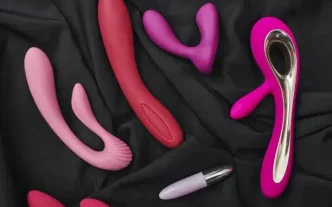
Better Sex Advice
Give your sexual happiness a boost and discover ways to make your sex life more fulfilling with our guides for improving your sex skills.

Sexual Health & Wellness
Advice

Bondage Advice

Lubes & Sex Essentials Advice
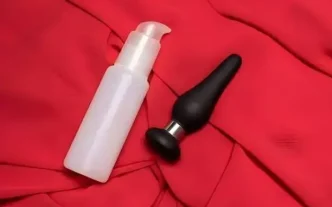
Lingerie Advice


